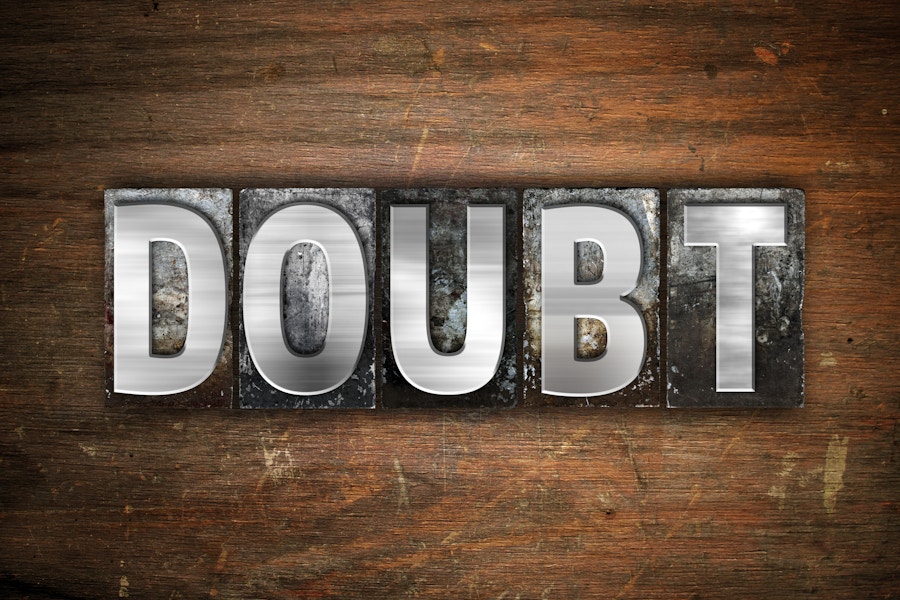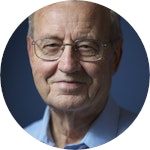Introductory Note:
Doubt comes to us in many forms. We may be fools to say it, but we might wake up one day and find, at a profound level, that we doubt the very existence of God. Or perhaps we wrestle with the existential twins of unbelief; Either we doubt if God is really powerful enough to act in our world or, if he is, whether he cares enough about us to do so. Whatever form our doubt may take, it’s important to acknowledge it as an elephant in the room of our followership of Christ.
This mock interview with Dallas Willard about doubt contains some memorable and liberating lines. Stick with us as we take a tough but important look at dealing with doubt.
James Catford
CUTTING EDGE MAGAZINE [CE]: We asked Dallas to role-play an evangelistic conversation with a 20-year-old girl who grew up in a Christian home, but finds her worldview challenged when she goes to college. She decides to see her pastor and says, “I used to believe strongly in the Christian faith, but now I think that there are many ways to see the world, and that, just because they differ, doesn’t mean they are right or wrong.” How would you answer her?
DALLAS WILLARD [DW]: I would start by saying that whether someone is a Christian or not, they are going to live according to certain assumptions about what is real. They are very likely to accept the popular notion that they live in a world where there really is no God, and that right and wrong are determined by what you want, as long as it doesn’t conflict with someone else’s freedom.
We have to start by helping people see that they cannot escape the fact that, no matter what they do, they are in fact choosing one version of what is real, true, and good. In that choice they need to be responsible. Not believing in something has exactly the same consequences as believing.
CE: So, this girl says: “OK, I understand: you are saying that I have to believe.”
DW: I’m saying that she has a belief. This is absolutely crucial for her to understand. Otherwise she is under the illusion that she is in a safe place simply because she hasn’t explicitly committed herself to something.
CE: She says: “OK, I want to believe. But I fear that in coming back to the church I would have to pretend that I am certain about some things that I feel like I can never be certain about again.”
DW: This is a common case. This is why people prefer a non-committal position. People have been sold this idea that, whether in culture, politics or religion, in order to commit to an idea, they have to be absolutely certain — and absolutely certain that everything else is wrong. That’s where I would say to her: “No, you don’t have to certain about anything you’re not certain about. In fact, certainty is not something you can choose, anyway. Certainty and uncertainty are not things that are under the will.”
She says, “You are telling me I could be a Christian, and still have doubts?” That’s right. It is possible to go to heaven with a lot of doubts, and it is possible to go to hell with a lot of certainty — people do it every day. But you cannot stay at such an abstract level for very long. You’re going to have to bring it down to a practical level with questions like: what do you believe about Jesus?
CE: “Okay,” she says, “I can acknowledge that. You know, I have read the gospels, and I think that Jesus was the greatest teacher there ever was. In fact, I’d like to live my life like him. But it feels like I have to ‘buy’ an awful lot more.”
DW: What I would say is this: you don’t have to buy anything you don’t want. We have to help people understand that belief is something that comes along as you experience. You don’t have to fake anything. The way faith works is this: you put into practice what you believe. If you’re attracted to Jesus, what do you believe about him that you can act on? Experience shows again and again that when you allow people to act on the little that they do believe, the rest will follow.
This article has been reprinted by permission from the Winter, 2001 issue of Cutting Edge magazine, a Church Planting quarterly newsletter produced by the National Church Planting Task force of Vineyard USA. For reprint permission, contact [email protected].


